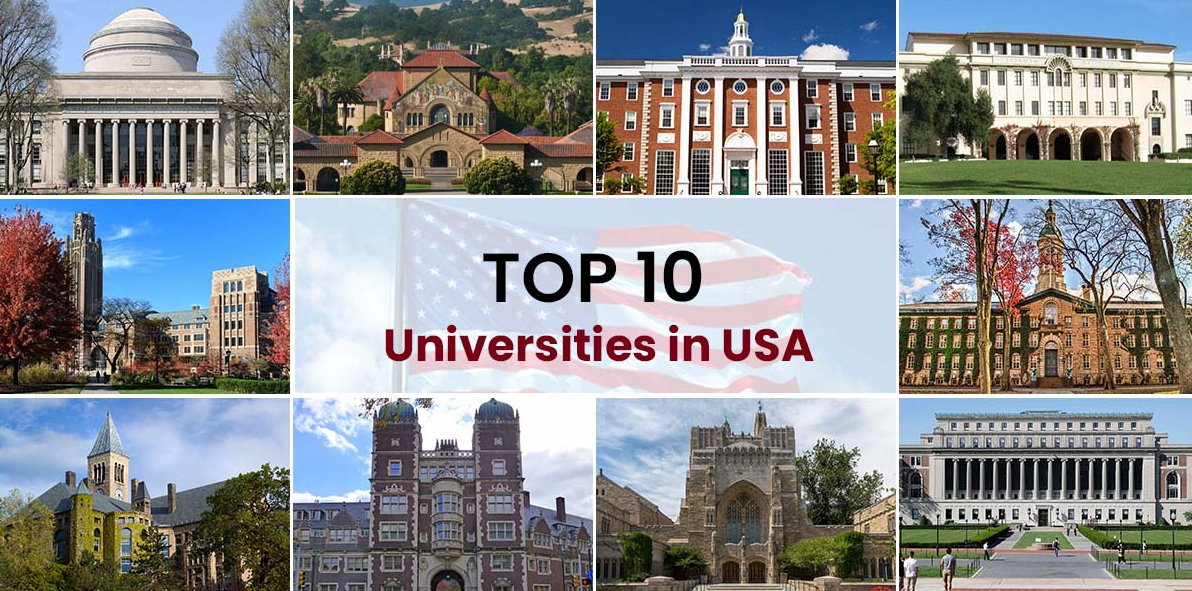Top Universities in the USA for Education Degrees in 2024
Introduction
Top Universities in the USA for Education Degrees In 2024, the United States continues to be a global hub for higher education, attracting students from around the world seeking quality education degrees. The field of education is particularly crucial, as it shapes the future of teaching and learning. Several universities in the USA stand out for their excellence in education programs, offering comprehensive curricula, distinguished faculty, and cutting-edge research opportunities.
Harvard University: Harvard consistently ranks among the top universities globally, and its Graduate School of Education is no exception. Known for its innovative programs, Harvard provides a diverse range of education degrees, from master’s to doctoral levels. The faculty comprises renowned scholars who contribute significantly to educational research and policy. Harvard’s commitment to fostering leadership and addressing societal challenges through education makes it a premier choice for aspiring educators.
Stanford University: Stanford University, situated in the heart of Silicon Valley, is renowned for its forward-thinking approach to education. The Graduate School of Education at Stanford offers a dynamic learning environment, emphasizing interdisciplinary research and the application of technology in education. Students benefit from the university’s strong ties to industry and access to cutting-edge resources, preparing them to navigate the evolving landscape of education in the 21st century.
University of Pennsylvania (Penn): The University of Pennsylvania’s Graduate School of Education is distinguished for its commitment to social justice and urban education. Penn’s programs are designed to equip educators with the skills needed to address educational disparities and promote inclusivity. The school’s emphasis on practical experience, combined with rigorous academic training, ensures graduates are well-prepared to make a positive impact in diverse educational settings.
Columbia University: Columbia’s Teachers College has a rich history of contributing to educational theory and practice. The institution emphasizes a holistic approach to education, integrating psychological, sociological, and historical perspectives. Teachers College offers a wide array of programs, catering to various educational interests and career paths. The vibrant academic community and New York City location enhance the overall educational experience.
University of California, Berkeley: UC Berkeley’s Graduate School of Education is recognized for its commitment to research-driven teaching and community engagement. The faculty at Berkeley actively contributes to educational policy discussions, and students benefit from a collaborative and inclusive learning environment. The university’s proximity to diverse communities in the Bay Area provides valuable opportunities for hands-on experience and outreach.
University of Michigan – Ann Arbor: The University of Michigan’s School of Education in Ann Arbor is a prominent institution known for its commitment to innovation and global perspectives in education. With a focus on research-driven teaching and a diverse student body, the School of Education prepares graduates to address educational challenges on a national and international scale. The university’s extensive network and partnerships provide students with opportunities for meaningful collaboration and real-world application of their skills.
Massachusetts Institute of Technology (MIT): While MIT is renowned for its emphasis on science and technology, its School of Education, Arts, and Social Sciences offers unique programs that integrate educational theory with technological innovation. MIT’s commitment to pushing the boundaries of traditional education through cutting-edge research and experimentation attracts students interested in exploring new frontiers in teaching and learning.
University of Texas at Austin: The College of Education at the University of Texas at Austin is a leading institution known for its dedication to fostering diversity, equity, and inclusion in education. With a comprehensive range of programs, including curriculum and instruction, educational leadership, and special education, the college prepares educators to meet the evolving needs of diverse learners. Austin’s vibrant cultural scene and the university’s strong community engagement further enrich the educational experience.
University of Chicago: The University of Chicago’s Department of Education offers a rigorous and interdisciplinary approach to the study of education. Known for its focus on research-based practices and critical inquiry, the department prepares students to be analytical thinkers and leaders in the field. The university’s urban location provides students with opportunities to engage with diverse communities, gaining practical insights into the complexities of education in an urban context.
University of North Carolina at Chapel Hill: UNC Chapel Hill’s School of Education is recognized for its commitment to producing educators who are not only knowledgeable in their subject areas but also culturally competent and socially aware. The school emphasizes experiential learning, offering students opportunities for internships, community service, and international experiences. The supportive and collaborative learning environment at UNC Chapel Hill fosters a sense of community among students and faculty alike.
USA COURSES: EDUCATION COURSES IN THE USA
Detailed Eligibility Criteria for Admission to Education Degree Programs
Admission to education degree programs in the USA is a selective process, with universities seeking candidates who demonstrate a combination of academic excellence, relevant experience, and a commitment to the field of education. While specific eligibility criteria may vary between institutions and programs, the following are common factors considered during the admissions process:
1. Educational Background:
- Undergraduate Degree: Most education programs require applicants to hold a bachelor’s degree from an accredited institution. While some programs may accept candidates with degrees in education or related fields, others welcome individuals with diverse academic backgrounds.
- Academic Performance: A strong academic record is often a key consideration. Many universities set a minimum GPA requirement, typically ranging from 3.0 to 3.5 on a 4.0 scale.
2. Standardized Test Scores:
- GRE (Graduate Record Examination): Some institutions require GRE scores as part of the application. The significance of GRE scores varies, and some programs may offer GRE waivers or consider other factors more heavily.
3. Letters of Recommendation:
- Applicants are usually required to submit letters of recommendation from individuals who can speak to their academic abilities, professional experience, or potential as an educator. These references often come from professors, employers, or professionals in the field of education.
4. Statement of Purpose (SOP) or Personal Statement:
- A well-crafted SOP is crucial. It should outline the applicant’s motivations for pursuing a degree in education, career goals, relevant experiences, and how the specific program aligns with their aspirations. Clarity of purpose and passion for education are often key components.
5. Professional Experience:
- Some programs, especially at the graduate level, may prefer or require applicants to have relevant professional experience in education or related fields. This could include teaching experience, educational research, or work in educational policy.
6. Prerequisite Coursework:
- Certain programs may have prerequisite coursework requirements, especially for candidates without a background in education. These prerequisites may include courses in psychology, child development, or educational philosophy.
7. Interview or Portfolio:
- In some cases, applicants may be required to participate in an interview or submit a portfolio showcasing relevant work or experiences. This is particularly common for programs with a focus on the arts, counseling, or specific educational methodologies.
8. English Language Proficiency:
- For international applicants, proficiency in English is a critical consideration. Most universities require satisfactory scores on standardized English language tests such as the TOEFL (Test of English as a Foreign Language) or IELTS (International English Language Testing System).
9. Additional Requirements:
- Depending on the program, there may be additional requirements such as a resume, writing samples, or a demonstration of teaching skills. It’s important for applicants to carefully review the specific requirements of each program they are applying to.
Prospective students are encouraged to thoroughly research the admission criteria of the institutions and programs they are interested in to ensure they meet all eligibility requirements. Meeting or exceeding these criteria increases the likelihood of a successful application to education degree programs in the USA.
Entrance Tests for Education Degree Programs in the USA
Entrance tests are a common component of the admissions process for education degree programs in the USA. These standardized assessments help universities evaluate the academic readiness, cognitive skills, and subject-specific knowledge of applicants. While specific requirements vary among institutions and programs, the following are some of the prominent entrance tests associated with education degrees:
GRE (Graduate Record Examination)
- Purpose: The GRE is widely used for admission to graduate-level education programs. It assesses verbal reasoning, quantitative reasoning, and analytical writing skills.
- Applicability: Many universities consider GRE scores as part of the admissions criteria, although some programs may offer GRE waivers or place less emphasis on these scores.
Praxis Core Academic Skills for Educators
- Purpose: Specifically designed for education candidates, the Praxis Core assesses academic skills in reading, writing, and mathematics.
- Applicability: Some teacher education programs require or recommend Praxis Core scores, particularly for candidates pursuing teaching certifications.
Miller Analogies Test (MAT)
- Purpose: The MAT evaluates analytical thinking and academic knowledge through analogy-based questions.
- Applicability: Some education programs, particularly in counseling or educational psychology, may accept MAT scores in lieu of the GRE.
GMAT (Graduate Management Admission Test)
- Purpose: While traditionally associated with business programs, some education leadership and administration programs may accept GMAT scores.
- Applicability: Programs considering GMAT scores often seek candidates with an interest in the administrative aspects of education.
TOEFL (Test of English as a Foreign Language) / IELTS (International English Language Testing System)
- Purpose: For international applicants, these tests assess English language proficiency.
- Applicability: Most universities require international applicants to submit satisfactory TOEFL or IELTS scores, ensuring they can effectively participate in coursework and communicate in an English-speaking academic environment.
Subject-Specific Tests
- Purpose: Some education programs may require subject-specific tests to assess proficiency in a particular area of education, such as literacy, mathematics, or special education.
- Applicability: These tests are often relevant for candidates seeking specialized endorsements or certifications.
School-specific Tests
- Purpose: Certain programs may administer their own entrance exams to assess applicants’ knowledge, skills, and readiness for the specific program.
- Applicability: These tests are unique to each institution and program, and their format and content are determined by the individual school.
Preparation for Entrance Tests: Prospective students are encouraged to thoroughly research the specific entrance requirements of the programs they are interested in and dedicate sufficient time to test preparation. Many resources, including study guides, practice exams, and review courses, are available to help candidates perform at their best on these standardized assessments. Additionally, some programs may consider multiple factors, such as work experience, letters of recommendation, and personal statements, alongside test scores when evaluating applications.



